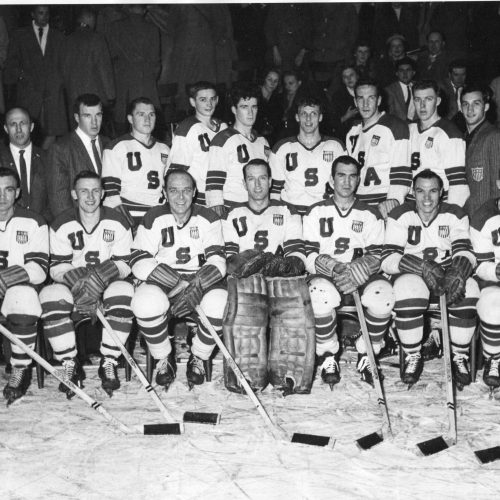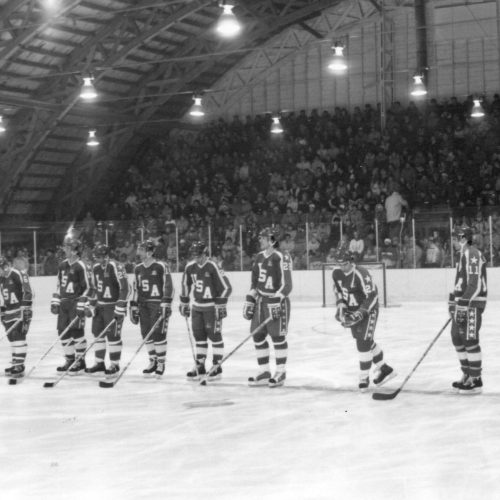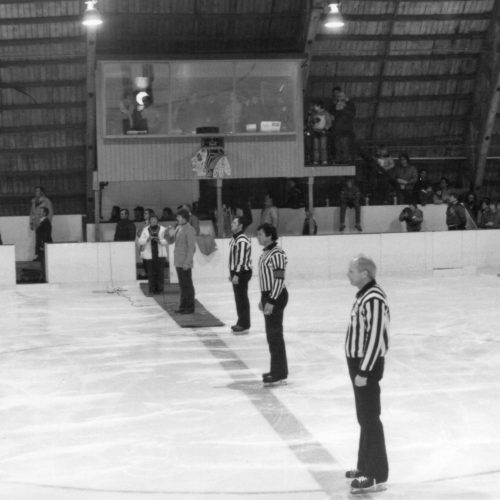THE REAL
HOCKEYTOWN USA®
BECOMING A
WARRIOR
DARE TO
DREAM
THE LEGENDARY
LAKERS
THE WALL
OF FAME
IN THE
MEDIA
WARROAD
LEGENDS
-
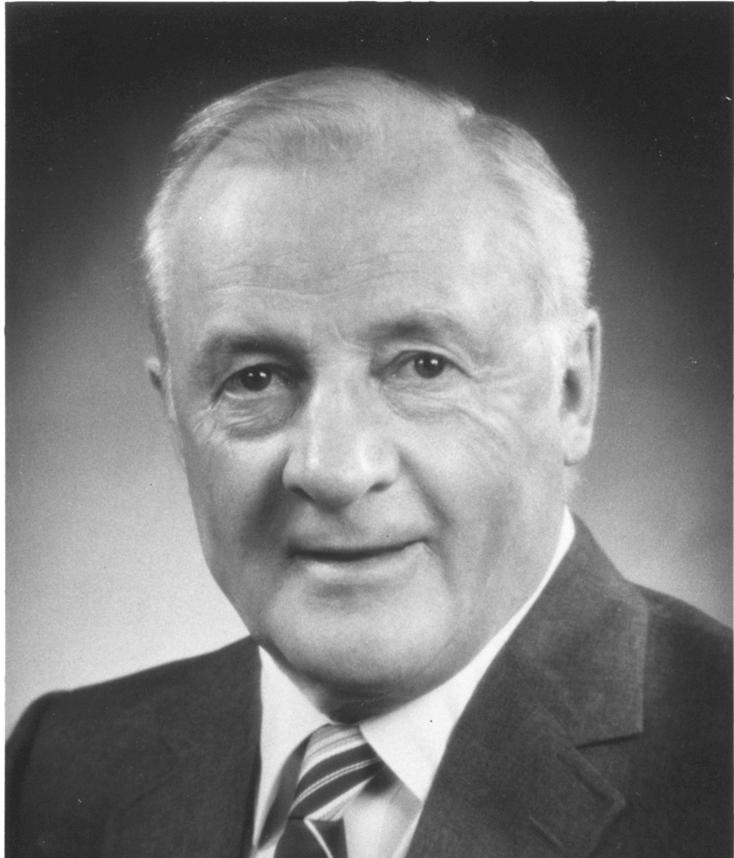
CAL MARVIN
Known as the Godfather of Warroad hockey, Cal Marvin’s legacy continues on nearly two decades after his passing.
The youngest of George and Almina’s five sons and second youngest of seven children overall, Cal fought in World War II, and loved the game of hockey so much, he named the Warroad Arena Fund as the beneficiary of his $10,000 life insurance policy. After returning from war, he spearheaded the efforts to build Warroad’s first arena, and by 1947, had succeeded in that goal.
In the meantime, Marvin founded the Warroad Lakers hockey club, which would go on to become the most successful amateur senior hockey team in the country. As occasional coach and full-time general manager, Marvin’s Lakers never had a losing season and won Intermediate championships in the United States in 1955 and in Canada in 1964 and 1974. The Lakers also won Canada's Senior championship in 1994, 1995, and 1996. In all, 19 United States Olympians and national team members also called themselves Laker alumni.
Many of the first Laker players, including Marvin himself, also helped start and play on the first varsity hockey team at the University of North Dakota, one of the most iconic brands in college hockey to this day.
A devoted family man, husband to Beth and father of 12 children, Marvin is a member of the U.S. Hockey Hall of Fame, the Warroad High School Athletics Hall of Fame, North Dakota Athletic Hall of Fame and the Manitoba Hockey Hall of Fame. -
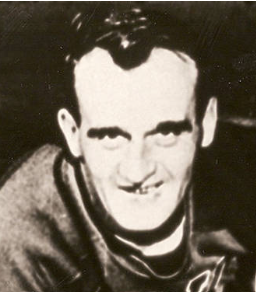
GORDON CHRISTIAN
When Gordon Christian helped the United States men’s hockey team win Silver at the 1956 Winter Olympics, he’d be the first member of his family to win a medal at the Olympics … but he wouldn’t be the last. Four years later, his brothers Bill and Roger, would be on the U.S. team that would win Gold in 1960, and later, his nephew Dave, would be a part of the legendary 1980 “Miracle on Ice” team that won Gold in 1980.
Gordon, or “Ginny” as he was often called, was a founding member of the varsity hockey team at the University of North Dakota, twice leading the team in scoring and becoming the first member of the school’s “Century Club” for scoring at least 100 points in his career. He scored two goals in a monumental 6-5 upset win over powerhouse Michigan in 1948, the first time UND had ever beaten a Big 10 school in any sport.
Ginny is a member of the Hall of Fame at both the University of North Dakota and Warroad High School. -
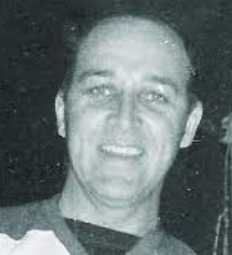
DAN MCKINNON
Born in the small town of Williams, 20 miles from Warroad, Dan McKinnon was a member of two U.S. national teams in 1955 and 1958, and served as alternate captain of the 1956 U.S. Olympic team that took home the Silver Medal.
The first ever All-American at the University of North Dakota, McKinnon was one of the finest defensemen in the country during his playing days. A founding member of the varsity team at UND, he was inducted into the Athletic Hall of Fame at the school in 1982. Named one of the school’s legends, a plaque honoring his contributions resides inside the entry way at Ralph Engelstad Arena in Grand Forks.
McKinnon was also a player on the legendary Warroad Lakers hockey teams in the mid-1950s, which were considered some of the finest hockey teams in the country, regardless of league. His playing career was cut short in 1959 after a hunting accident damaged his arm. -
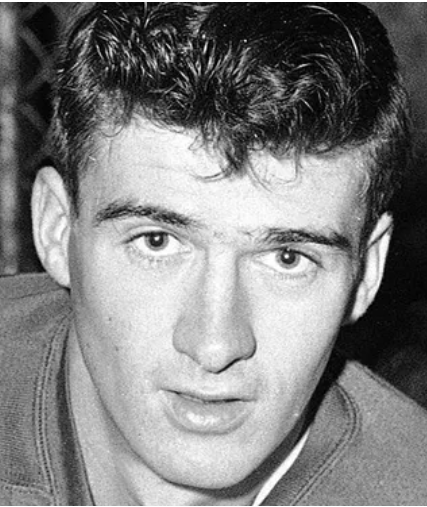
BILL CHRISTIAN
It’s very likely the United States doesn’t win Gold in men’s hockey at the 1960 Olympics, if not for Warroad’s own Bill Christian. Trailing 2-1, “Bill” scored the tying and the winning goals in a 3-2 win over the Soviet Union, before the Americans secured Gold with a victory over Czechoslovakia in the Gold Medal game in Squaw Valley, Calif.
Before competing in a pair of Olympic games, he and his older brother, Roger, helped Warroad High School to a second-place finish at the 1953 Minnesota State High School tournament. The two would also skate for the U.S. in the 1964 Olympic Games in Austria before returning home to start Christian Brothers Inc., one of the foremost hockey stick manufacturers in the country.
Bill would play 20 years for the Warroad Lakers, never enduring a losing season during that span, before retiring as a player in 1980. He was inducted into the U.S. Hockey Hall of Fame in 1984 and is also a member of the Warroad Athletics Hall of Fame. -
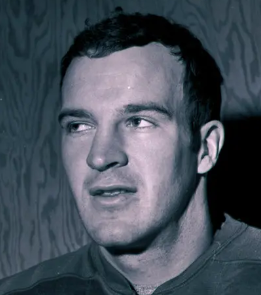
ROGER CHRISTIAN
Like his brothers Ginny and Bill, Roger Christian’s hockey journey began on the streets and outdoor ice of Warroad. He’d be named an All-State player and lead the Warroad Warriors to the Minnesota State High School League tournament before competing for the U.S. National Team five times and representing the Stars and Stripes at two Winter Olympic Games, playing with Bill each time, including a Gold Medal-winning effort in 1960.
Upon returning home, he played 20 years for the Warroad Lakers and had his jersey No. 7 retired by the team. He was also a co-founder of the hockey stick manufacturer Christian Brothers Inc. Roger was inducted into the U.S. Hockey Hall of Fame in 1989 and is also a member of the Warroad Athletic Hall of Fame. -
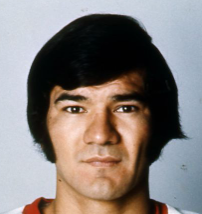
HENRY BOUCHA
One of the most dominant forces in the history of Minnesota hockey, Henry Boucha’s career on the ice flashed like a supernova. Perhaps the most electrifying player to ever play in the State High School League Tournament, Boucha – later nicknamed “The Chief” in a nod to his Ojibwa heritage - helped Warroad to the state championship game in 1969. Injured early in the game against Edina, the Warriors would lose in overtime without their star player.
After joining the U.S. Army, Boucha played for the U.S. National Team twice and later for the U.S. Olympic Team where he won a Silver Medal in the 1972 Winter Olympics in Japan. The year prior, he was selected in the first round of the NHL Draft by his favorite team as a kid, the Detroit Red Wings. After returning from the Olympics, he would join the Wings and score a goal in his NHL debut.
In 1974, Boucha was traded to the Minnesota North Stars and appeared on his way to stardom until an on-ice assault at the hands of the Boston Bruins’ Dave Forbes severely injured Boucha’s right eye. He would never be the same, playing the remainder of his career with double and blurred vision. After stints with the WHA’s Minnesota Fighting Saints and an abbreviated return to the NHL with the Kansas City Scouts and Colorado Rockies, Boucha was forced to retire from the sport at the age of 25. -
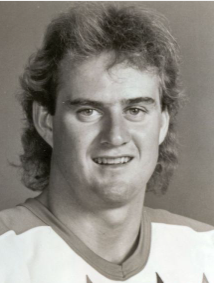
DAVE CHRISTIAN
The son of Bill and nephew of Roger and Ginny, Dave Christian followed in the footsteps of his father and uncles by representing the United States in the Winter Olympics. And like Bill and Roger, Dave would bring a Gold Medal home to Warroad as a member of the famed “Miracle on Ice” team that upset the Soviet Union en route to Gold in Lake Placid in 1980.
Christian’s Olympic run came on the heels of an excellent two-year run at the University of North Dakota, where he helped lead the then-Fighting Sioux to the NCAA championship game in 1979, where they fell to the University of Minnesota by a 4-3 margin.
Just one week after winning Gold in 1980, Christian’s NHL career began with the Winnipeg Jets, the franchise that drafted him with the 40th pick in the 1979 Draft. His NHL career would span 15 years and more than 1,000 games, playing for the Jets, Washington Capitals, Boston Bruins, St. Louis Blues and Chicago Blackhawks. His final two years of pro hockey came back home in Minnesota, when he starred for the Minnesota Moose of the IHL, before calling it quits in 1996.
In addition to winning Gold in 1980, Christian also represented the United States at the 1979 World Junior Championships and played for two other U.S. National teams. An NHL All-Star in 1991, Dave Christian was inducted into the U.S. Hockey Hall of Fame in 2001.

